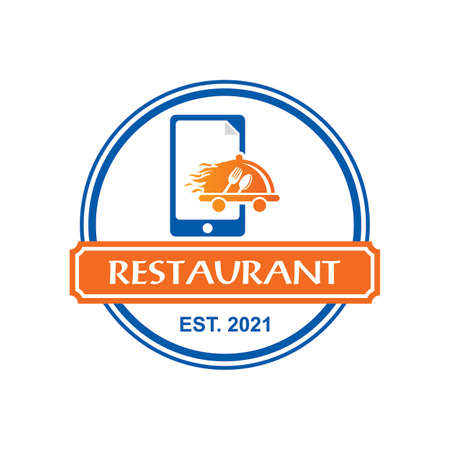Optimising Website Structure and Mobile Experience
Creating a seamless online experience for your restaurant or pub is essential, especially as UK diners increasingly rely on their mobiles to find local spots. A well-structured website not only makes it easier for visitors to navigate but also improves your visibility in search engines like Google. Here’s how you can align your website with best practices that meet the expectations of British users:
Key Elements of User-Friendly Website Structure
| Element | Best Practice | UK-Specific Tip |
|---|---|---|
| Navigation | Simple, logical menus with clear categories (e.g., Menu, Bookings, Contact) | Include a ‘Find Us’ page with a postcode and map for easy directions |
| Homepage Content | Highlight main offerings, opening hours, and unique selling points upfront | Mention features like Sunday roasts or real ales if relevant |
| Internal Linking | Link between related pages (menus, events, bookings) to guide users and search engines | Add links to special offers or seasonal menus common in UK hospitality |
| Footer Information | Contact info, social media links, and legal details (privacy policy, cookies) | Display your food hygiene rating and licensing info if available |
Mobile Optimisation Essentials
- Responsive Design: Ensure your site adapts smoothly across all devices—test on iPhone and Android models popular in the UK.
- Fast Loading Times: Compress images of your dishes and venue to keep load times under three seconds—a must for busy British customers.
- Tappable Buttons: Make reservation, menu download, and call buttons large enough for easy use on smaller screens.
- Click-to-Call Functionality: Especially important for pub-goers looking to book a table after work or check last orders.
Crawling & Indexing: Making Your Site Search Engine Friendly
- Sitemap: Submit an up-to-date XML sitemap to Google Search Console so all your pages get indexed quickly.
- Robots.txt: Check this file doesn’t accidentally block key pages such as your menu or contact form from search engines.
- Structured Data: Use schema markup for restaurants or pubs to help Google display your business hours, address, and customer reviews directly in search results.
The Local Touch: Meeting UK User Expectations
Your website should reflect local culture—think clear information about accessibility (step-free access is a plus), support for local suppliers, and familiar payment methods like contactless. By focusing on practical improvements and UK-specific details, you’ll ensure both customers and search engines can easily find and enjoy what you have to offer.
Local SEO Techniques for British Eateries
For restaurants and pubs across the UK, local SEO is a crucial part of attracting nearby customers who are searching for their next meal or pint. Ensuring your venue stands out in search results requires a tailored approach that matches British online habits and platforms. Here are practical tactics to boost your visibility in local searches:
Optimise Your Google Business Profile
Claiming and thoroughly completing your Google Business Profile (formerly Google My Business) is fundamental. Make sure your business name, address, phone number, and opening hours are accurate and match those on your website. Upload high-quality photos showcasing your ambience, food, and drinks. Encourage happy guests to leave reviews, responding to them with a friendly British tone.
Key Google Business Profile Elements
| Element | Best Practice |
|---|---|
| Name/Address/Phone (NAP) | Consistent across all online platforms |
| Categories | Select relevant ones like “British Restaurant” or “Pub” |
| Photos | Regularly update with fresh images of food, interiors, and events |
| Reviews | Encourage positive reviews and reply promptly |
Get Listed on Local Directories
Add your eatery to reputable UK-focused directories such as Yell.com, Scoot.co.uk, TripAdvisor UK, and local council websites. Be sure your NAP details are consistent everywhere. These listings help build trust with both search engines and potential diners.
Popular UK Directory Sites for Hospitality Businesses
| Directory Name | Focus Area |
|---|---|
| Yell.com | General business listings across the UK |
| Scoot.co.uk | UK small businesses including hospitality venues |
| TripAdvisor UK | User reviews specific to restaurants and pubs |
| The Good Food Guide | Curation of quality eateries across Britain |
Create Locally Relevant Content
Add pages or blog posts about local events, partnerships with nearby suppliers, or traditional British dishes unique to your area. This content helps connect you with local audiences and signals to search engines that you’re a community-focused business.
Maintain Consistency Across Platforms
Your contact information should be identical on every site—your own website, social media channels, directory listings, and Google Business Profile. Even minor discrepancies can impact your rankings in local searches.

3. Crafting Menus and Content with UK Keywords
When optimising your restaurant or pub’s online presence, it’s crucial to use British English keywords and phrases that resonate with your target audience in the UK. Not only does this help you rank higher on search engines, but it also ensures locals and tourists searching for a true UK dining experience find your establishment first.
How to Identify Relevant British Keywords
Start by researching what diners in the UK typically search for when looking for places to eat. Use tools like Google Keyword Planner, SEMrush, or Ahrefs to discover popular terms. Focus on words and phrases unique to British culture and cuisine. For example, instead of “fries,” use “chips”; swap “appetisers” for “starters.”
Examples of British Menu Terms
| American English | British English (UK) |
|---|---|
| Appetiser | Starter |
| Main Course/Entrée | Main Course |
| Fries | Chips |
| Soda | Soft Drink/Fizzy Drink |
| Dessert | Pudding/Sweet/Dessert |
Incorporating Location-Specific Phrases
Add neighbourhoods, landmarks, or city names into your menu descriptions and website content to attract local traffic. For example, “traditional Sunday roast in Soho” or “family-friendly pub near Liverpool Street.” This not only boosts SEO but also reassures customers they’re in the right place.
Sample List of Popular UK Dining Queries:
- “Best fish and chips near me”
- “Dog-friendly pubs in Manchester”
- “Vegan brunch London”
- “Gluten-free afternoon tea Brighton”
Regularly update your content with seasonal menus, specials, and events using these targeted keywords. By aligning your language with how Brits actually search and dine, you’ll increase both your visibility and appeal among local clientele.
4. Managing Reviews and Online Reputation
In the competitive hospitality sector, reviews play a pivotal role in shaping the online reputation of restaurants and pubs across the UK. Effective management of reviews not only builds trust with potential customers but also contributes positively to local SEO rankings. Here’s how you can actively encourage, monitor, and respond to customer feedback on key UK platforms.
Encouraging Reviews on Major UK Platforms
It’s essential to make it easy for guests to leave reviews on platforms that matter most in the UK: TripAdvisor, Google, and Facebook. Consider incorporating gentle reminders at the end of a meal, adding QR codes on receipts, or sending follow-up emails. Consistently gathering authentic feedback helps signal your popularity and relevance to search engines.
Popular Review Platforms for UK Restaurants & Pubs
| Platform | Benefits | Best Practices |
|---|---|---|
| TripAdvisor | Widely used by locals and tourists; impacts travel decisions | Claim your listing; update photos; encourage detailed feedback |
| Affects local search visibility; links with Google Maps | Verify your business profile; reply promptly to all reviews | |
| Popular with local communities; integrates with social sharing | Enable recommendations; engage publicly with reviewers |
Strategies for Responding to Reviews
Your responses to reviews—positive or negative—reflect your brand’s professionalism and care for customers. Always thank guests for their time and feedback. For criticism, acknowledge any issues and offer solutions or apologies where appropriate. Avoid generic replies; personalise each response using the reviewer’s name or referencing their specific experience.
Response Tips for Building Trust
- Respond within 48 hours for maximum impact.
- Avoid defensive language even when reviews are negative.
- Show appreciation for constructive criticism—use it as an opportunity to improve.
The Impact on Local SEO
Regular engagement with reviews signals activity and trustworthiness to search engines. This can directly influence your rankings in “restaurants near me” searches across the UK. Encourage ongoing customer interaction and showcase positive testimonials on your website to further enhance credibility and click-through rates from search results.
5. Building Local Backlinks and Partnerships
Securing quality local backlinks is a vital part of any effective SEO strategy for restaurants and pubs in the UK. Google values inbound links from reputable UK-based sources, as these validate your business’s relevance and authority within your local community. Here are practical ways to gain valuable backlinks and foster partnerships that can boost your online presence:
Ideas for Gaining Inbound Links from UK-Based Sources
| Strategy | Description | Potential Partners |
|---|---|---|
| Local Food Blogger Outreach | Invite British food bloggers for complimentary meals in exchange for honest reviews and website mentions. | Regional food influencers, culinary Instagrammers, lifestyle bloggers |
| Community Website Listings | Request inclusion in local directories, event listings, or ‘Best of’ roundups specific to your city or county. | Council websites, local business directories, tourism boards |
| Sponsorships & Collaborations | Sponsor local events or partner on community initiatives to earn featured mentions with backlinks. | Charities, festivals, sports clubs, schools |
| Supplier Features | Collaborate with British suppliers or breweries; ask to be highlighted as a featured client on their sites. | Beverage distributors, farm shops, craft breweries |
| Press Releases to Regional Media | Announce new menu launches or events through press releases targeting UK regional news outlets. | Local newspapers, radio stations, online magazines |
Collaborating with British Food Bloggers & Community Websites
Build relationships with bloggers: Connect authentically with British food bloggers by engaging with their content on social media before pitching collaboration ideas. Offer exclusive tasting sessions or behind-the-scenes tours to create engaging stories they’ll want to share.
Engage local community platforms: Reach out to neighbourhood forums like Nextdoor or hyper-local Facebook groups to promote special offers and participate in discussions about dining in your area. These platforms often allow businesses to share updates that link back to your site.
Create shareable content: Develop guides such as “Best Sunday Roasts in [Your Town]” or “Traditional British Ales You Must Try” that can be linked to by other local businesses and tourism sites.
The Impact of Quality Local Backlinks
High-quality local backlinks signal trustworthiness and relevance to search engines. They also drive targeted traffic from potential customers who live nearby or are planning visits. By prioritising genuine connections with other British businesses and community leaders, you not only enhance your SEO but also strengthen your reputation within the local hospitality scene.
Tracking SEO Performance and Making Improvements
Once you’ve implemented your essential SEO checklist for your restaurant or pub, it’s crucial to track your progress and make informed improvements. In the UK market, using the right tools and understanding local data can significantly boost your website’s visibility. Here’s how you can effectively monitor your SEO performance and take actionable steps to enhance your online presence.
Recommended Tools for UK Businesses
| Tool | Main Features | Why It Suits UK Restaurants & Pubs |
|---|---|---|
| Google Analytics | Tracks website visits, user behaviour, and conversion rates. | Free and robust, with location filters for monitoring UK-specific traffic. |
| Google Search Console | Monitors search performance, indexing issues, and site health. | Highlights search queries popular in the UK and helps resolve local ranking issues. |
| Bing Webmaster Tools | Analyses site health, backlinks, and keyword performance on Bing. | Bing is popular with certain UK demographics; good for regional reach. |
| BrightLocal | Local SEO audits, rank tracking, citation building. | Tailored to UK local businesses; monitors Google Maps and directory listings. |
| SEMrush or Ahrefs | Competitor analysis, keyword research, backlink auditing. | Both platforms offer UK-specific keyword databases and competitor insights. |
Key Metrics to Track for Restaurants & Pubs
- Organic Traffic: Monitor the number of visitors arriving via search engines. An increase indicates improved visibility.
- Keyword Rankings: Track your main keywords (e.g., “best pub in Manchester”) to see how you compare locally.
- Click-Through Rates (CTR): Evaluate how often people click on your listing in search results – a key sign of enticing titles and meta descriptions.
- User Engagement: Measure average session duration and bounce rate to assess if visitors find what they’re looking for on your site.
- Local Pack Presence: Check if your business appears in the Google Maps ‘local pack’ for targeted searches.
- Online Reviews: Monitor reviews on Google, TripAdvisor, and other local directories as they influence both rankings and customer trust.
Using Data to Improve Your Website’s Visibility
The insights from these tools should guide ongoing improvements. For example:
- If a particular menu page has high bounce rates, consider improving its content or adding more engaging images of your dishes or drinks.
- If certain keywords are underperforming, update those pages with richer information about your location or unique offerings (like Sunday roast specials).
- If reviews are sparse or negative, encourage happy customers to leave feedback and respond promptly to criticism to build trust with potential diners.
- If you’re not appearing in local packs or maps, double-check that your Name, Address, and Phone Number (NAP) are consistent across all platforms – this is vital for UK local SEO success.
The Bottom Line: Continuous Monitoring Makes a Difference
Your restaurant or pub’s SEO isn’t a one-off task – it’s an ongoing process. By using UK-focused tools, regularly reviewing performance metrics, and acting on data-driven insights, you’ll maintain a strong online presence that attracts more local patrons through your doors all year round.


